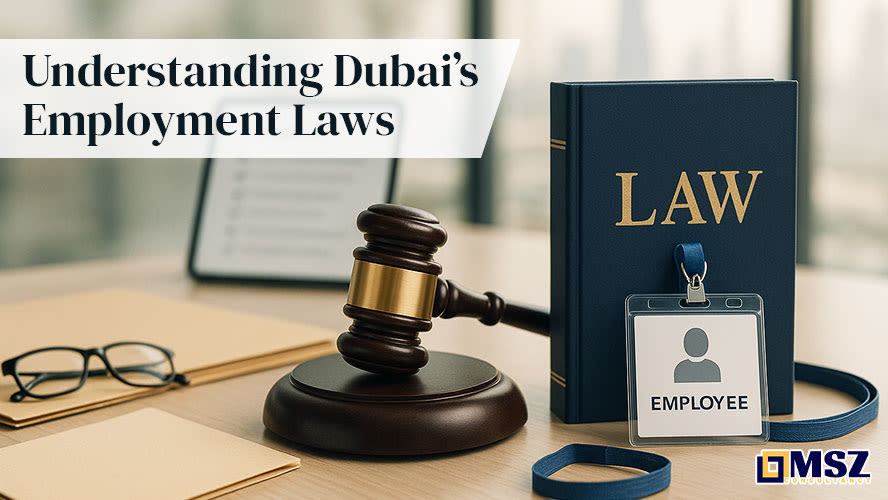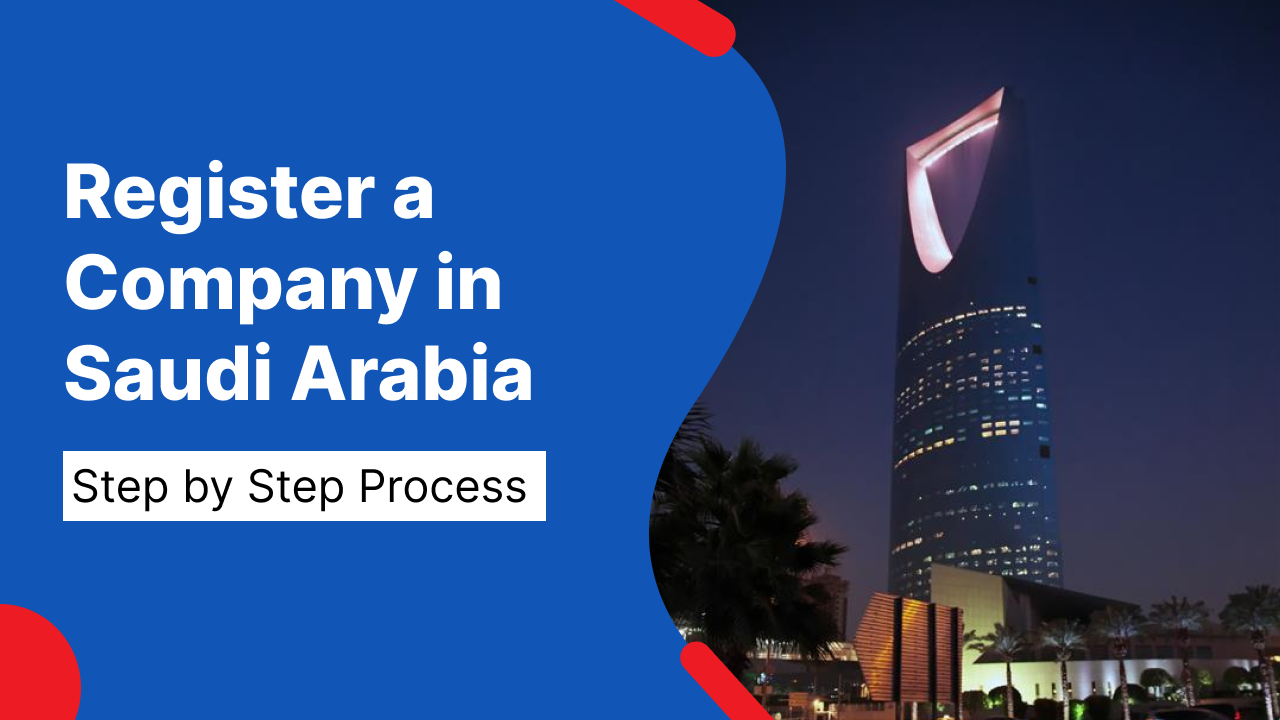
Look, Dubai's a fantastic place to build a business or a career. But let's get one thing straight from the start: the employment law here can trip you up if you don't know how the system works.
The biggest thing most people miss? Dubai basically has two sets of rules. You've got the standard UAE law that covers most of the city, and then you've got the separate systems for free zones like the DIFC. Mixing them up is a classic, and costly, mistake.
This isn't a fancy legal textbook. It's a practical rundown of the stuff that actually matters- the key rules from the latest labour law and the crucial differences in the free zones. Consider this your essential first briefing to help you avoid the common pitfalls.
Understanding Dubai Labour Law: Key Requirements for Businesses
1. Types of Employment Contracts in Dubai: Understanding Fixed-Term Rules
The days of limited vs unlimited contracts are gone. Now, all contracts are fixed-term. Fixed-term contracts can be for up to two years and can be renewed if both parties agree to the terms.
Key Takeaways:
- Contracts must be in writing and registered with the Ministry of Human Resources and Emiratisation (MOHRE), and with the job title, duties, and salary explicitly stated.
- Transitioning to fixed-term contracts removes ambiguity, but it is still important to be very organised when preparing the written agreements.
The more consolidated a contract is, the less likely there will be mistakes, issues, and discrepancies in the future.
2. Dubai Working Hours and Overtime Pay Regulations
Dubai provides clear working hour regulations, but a good understanding is advisable.
Working Hours:
- Employees work regularly 8 hours/day or 48hours/week. The hospitality sector can expand this to 9 hours/day.
- Muslim employees during Ramadan will have reduced hours to 6 hours/day or 36 hours/week.
Overtime:
- Overtime is payable at 125% of the normal rate.
- If the overtime is taken between the hours of 10 PM and 4 AM, this is payable at 150%.
- If it is required to work on a Friday, they can either take a replacement day off or they will receive an additional 150% payment.
Key Takeaways:
- Monitor working hours.
- Pay overtime, if required by law to avoid unnecessary costs.
Knowing overtime guidelines helps you stay compliant and is an important piece of maintaining integrity and trust with your employees.
3. Wages and Salary Rules in Dubai: The WPS System Explained
The Wages Protection System (WPS) is in place to ensure wages are paid fairly and on time. Each company doing business in the mainland must comply with WPS, which provides transparency on salary payments.
Minimum Wage:
- There is no national minimum wage in the UAE. Emirati nationals could have minimum wage obligations under the Nafis program.
- For expatriates, they should be compensated fairly, reflecting their role and reflecting industry standards, per the agreed contract between the parties.
Key Takeaways:
Your company follows WPS, and it is required, so ensure you have a system in place to satisfy the requirements of WPS.
4. Employee Leave Entitlements in the UAE: Annual, Sick, and Maternity
The new law improved many Employee Leave entitlements for employees in Dubai.
Annual Leave: After 1 year of service, the Employee gets 30 days of paid annual leave.
Sick Leave: Each year, employees get up to 90 Sick leaves. Which includes:
- 15 days on full pay,
- 30 days on half pay,
- 45 days as unpaid sick leave.
Maternity leave: Female employees in the private sector are entitled to 60 days of maternity leave (which is made up of 45 days full pay and 15 days half pay).
Parental leave: Both parents are now entitled to 5 days of parental leave with pay.
Bereavement leave: Employees in the private sector can have 3-5 days bereavement leave with pay for a death in the family.
Summary: Update your leave policies; put documentation in place for sick and maternity leave; these changes have made the UAE more favorable to employees, and it is important that employers comply with them.
5. Terminating Employment in Dubai: Notice Period and End of Service Gratuity
The rules around termination and end of service payments are clearer than ever.
Notice Period:
Employees are required to give a minimum of 30 days’ notice. In some cases, it can take up to 90 days, depending on contract requirements.
End of Service Gratuity:
Gratuity is a lump sum payment based on an employee's basic salary and the number of years of service:
- 1-5 years of service, 21 days’ salary for every year.
- 5+ years of service, 30 days’ salary for every year after the fifth year.
If an employee is dismissed for gross misconduct, gratuity is not payable.
Key Takeaways:
- Review your contracts' termination clauses.
- Gratuity is a legal entitlement, but will only be applicable if the Employee completes one uninterrupted year.
Termination is a delicate issue. Having explicit policies and having conversations up front can lessen confusion and potential disagreements down the road.
6. Employee Rights in the UAE: Discrimination, Safety, and Equal Pay
The law that was passed in 2021 made some changes regarding employee protections, particularly related to working conditions.
Non-Discrimination and Anti-Harassment: Employers cannot discriminate on the basis of gender, race, religion, or disability. Sexual harassment and bullying are also prohibited.
Health and Safety: Employers must provide a safe workplace. Employers must also provide employees with mandatory medical insurance.
Equal Pay for Equal Work: Employers cannot pay men and women differently when the work is the same.
Key Takeaways:
- Prohibit inappropriate workplace conduct and enforce your policies.
- Provide health insurance to workers as required by the law.
Establishing safe and inclusive workplaces is not only the law, but it is the right thing to do. It also promotes a positive workplace culture.
7. Resolving Labour Disputes in Dubai: MOHRE and Labour Court Process
If you have an issue regarding employment, the process is simple:
- MOHRE (Ministry of Human Resources and Emiratisation): You will file a complaint with MOHRE. MOHRE will attempt to mediate and resolve the issue at that stage.
- Labour Court: If mediation does not resolve the issue, it will be taken to the Labour Court.
Takeaways:
- MOHRE is the first place to start your complaint and potential resolution. It is usually much quicker, easier, and cheaper than the alternative.
- You should keep all records of your communication and actions.
Disputes can be costly and damaging to both parties, so it is always preferred to resolve the issue promptly and at the mediation stage.
The DIFC and ADGM Exception: Free Zone Employment Laws
If your company is located in the Dubai International Financial Centre (DIFC) or Abu Dhabi Global Market (ADGM), employment laws vary from what you would normally expect in the UAE.
These zones do not fall under the civil law of the UAE; instead, they operate under common law, and each has its own courts.
There are key differences between the systems:
- Contracts: Fixed-term and indefinite contracts (unlike the previous system, where the contract is presumed to be indefinite).
- End of Service: DICF uses the DEWS scheme (an employee savings plan) instead of gratuity payment at the end of employment.
- Legal Precedent: There are case law obligations to follow in those courts, which are different from the mainland pattern we discussed above.
Key Takeaway:
You should always establish whether your employment contract is within the mainland legal system or a free zone (DIFC/ADGM legal system) before you do anything in relation to it.
Conclusion
Dubai’s employment laws have changed. A lot. The 2021 Federal Labour Law rearranged the landscape for every employer in the mainland, but places like DIFC and ADGM have their own variations, meaning everyone will need to know who runs what. Staying on top of everything is not only a good idea, it is a necessity.
It isn’t about the red tape - it is about being able to get on with running your business, looking after your people, and resting easy knowing you are within the law.
We, at MSZ, ensure that you’re always updated. For more info, book a consultation today or call us at +971 52 544 1248.

Mohammed Sultan Zubair
CEO - MSZ Corporate Services
Mohammed Sultan Zubair is a seasoned business consultant specializing in company formation and regulatory compliance in the UAE and Saudi Arabia. With over 15 years of experience, he has guided entrepreneurs, SMEs, and multinational firms through the complexities of regional business laws and market entry strategies. His deep understanding of local licensing, taxation, and free zone structures ensures clients make informed, strategic decisions. Mohammed Sultan Zubair regularly contributes insights on corporate setup, investment trends, and regional economic developments.





